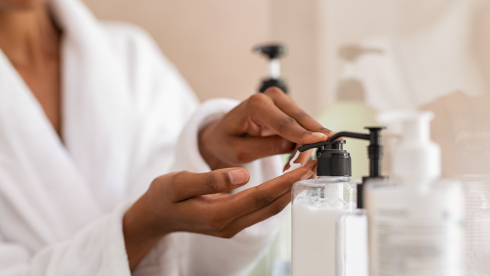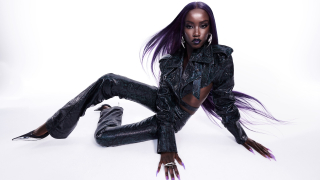It’s not as though there is anything special my daughter, Nisa, is doing. As I write this, she is leaning back, listening to, I don’t know, Future? Drake? But peeking over at her, I still get that same feeling—a rush of life and purpose that true love brings with it.
It wasn’t that I hadn’t loved before. I had, and each time it felt magical. The Mediterranean husband who gave me a home in Greece when I was 21, only to watch his crippling depression cleave us apart before I turned 25. The second husband, a prisoner, who listened to my poems and made me his wife when I was 28 and a mother when I was 33, deported three months and a day after our daughter was born. Before those men and since, there were other loves—edgy bad boys whose anger I thought was justifiable until they directed it against me rather than the various systems and structures that undid them.
But even with all of them—those romances I thought so epic—I’d never really known love, the full-bodied freedom of it, until I became a mother. I had known love contracted by profound sadness or penetrating rage. Love constrained by barbed wire and armed guards. Love parsed, love sifted. I had known a measured love, until I gave birth to my Nisa.
I have this memory: Nisa’s not quite 2 and we’re at my then-boyfriend’s house when someone in the crib decides to turn up, and before you know it, old-school house music is on blast and the tiny apartment shape-shifts into the legendary Paradise Garage, circa 1985. Nisa pops up and out of my arms and starts dancing like there’s no world but one of dance, and she is the rhythm and beat, the rhythm and the beat are her. Her joy, her life: They are infectious and before I know it, I am shedding my insecurities about how I dance like a White girl, and I start moving. I swear to God, the boyfriend’s Rottweiler does, too, in a dog sort of way. And finally even the boyfriend—one of those aforementioned bad boys—could no longer maintain his man scowl, and he’s picking me and Nisa up and we are all hugging and dancing and laughing while the dog runs around us in excited circles. It was one of the most joyous and free moments in my life and it was also the moment I realized why I loved my baby so much, which wasn’t something I ever gave much thought to. I just loved her; loved her before I even knew her.
But in that hour, in that home, while I cherished her for reasons too numerous to list, there was one above all: She was free. And in being her free self, she liberated those around her. She liberated me. In that room, on that day, and on almost every day after that, with my Nisa, I am myself, unmasked and free to love as fully and openly as I know I need to. Love without boundaries. This is no small thing in a place where Black love of any kind has never been a protected right.
My daughter was the first free person I’d ever known. And for almost 16 years now, my work has been to protect that freedom with a love I never knew I was capable of. A-nothing-can-break-it, ain’t-no-error-or-misstep-too-great, an all-in kind of love. Which isn’t to say she’s somehow immune from the terrorism that stalks Black life in general in America or the particular terrorism that makes being a Black girl unsafe. But in this home/life we’ve created, there’s a protected space of freedom that love created. And each morning when I awake I whisper to my Nisa, “Thank you for being my baby, thank you for coming to me.” Because for all I am supposed to teach and give her, that girl of mine taught me the greatest lesson of all: how to live, how to love, how to be free.













